AITA For calling my co-worker "chunky" after she repeatedly calls me "slim" and makes references to my weight after I asked her multiple times not to.
In a tense workplace charged with unspoken judgments, a young woman finds herself trapped under the weight of relentless comments about her slender frame. Despite her polite requests for respect, her co-worker’s barbed remarks slice through each day, leaving her feeling exposed and belittled in a place she had hoped for camaraderie.
When she finally mirrors the harshness back, calling out the hurt disguised as humor, the fragile balance shatters—tears replace taunts, and the office divides. In this quiet battleground, the question of who is right or wrong blurs, revealing the painful truth about how words can wound, no matter the size they target.

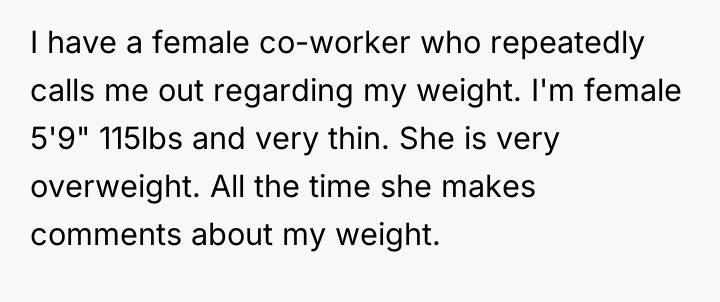
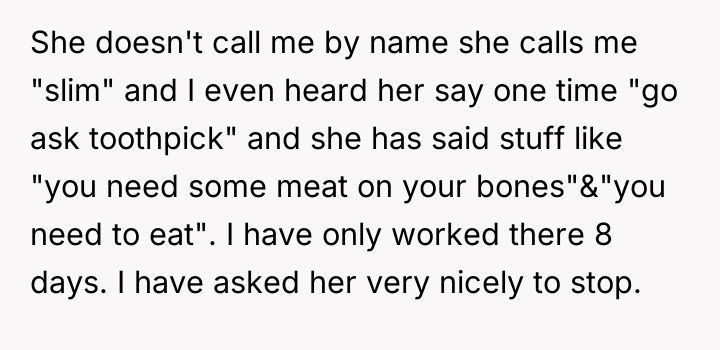
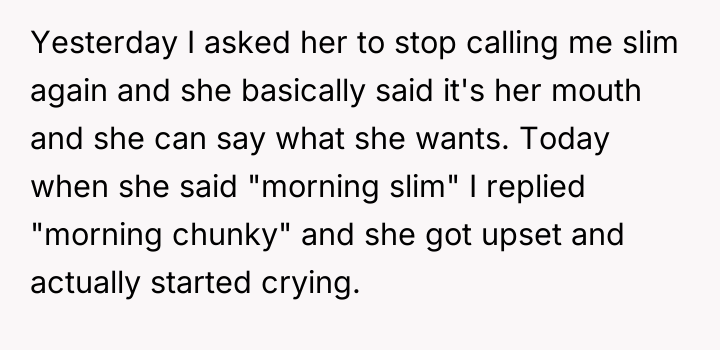
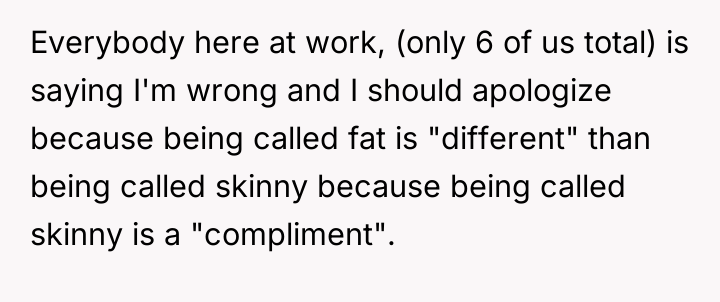
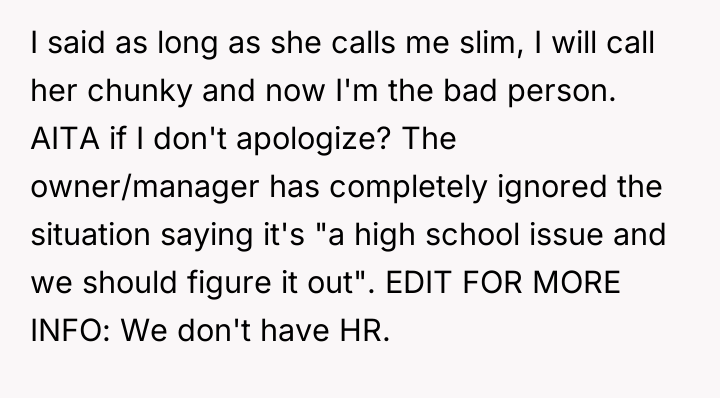
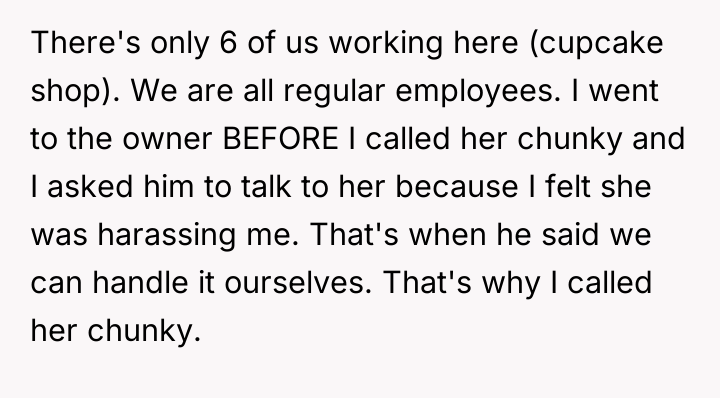
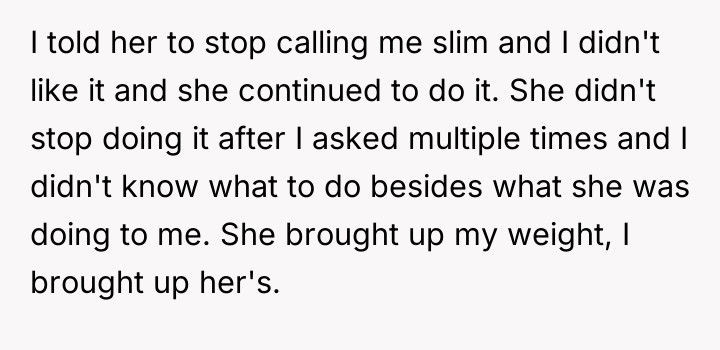
Subscribe to Our Newsletter
As renowned researcher Dr. Brené Brown explains, “Boundaries are the distance at which I can love you and me simultaneously.” In this workplace dynamic, the coworker clearly failed to respect the OP’s professional boundaries by repeatedly commenting on the OP's body size, using dehumanizing nicknames like "slim" and "toothpick." The OP's initial approach—asking nicely to stop—was appropriate, but when this failed, the coworker effectively signaled that only a reciprocal action would halt the behavior. The OP's decision to retaliate by calling the coworker "chunky" was an understandable, albeit counterproductive, escalation rooted in frustration and feeling unheard, especially since management explicitly abdicated responsibility by labeling it a "high school issue." While the OP's action was a direct response to ongoing harassment, mirroring the harassment often shifts the focus away from the initial aggressor's behavior. The coworker's subsequent emotional reaction (crying) is irrelevant to the appropriateness of the initial boundary violation. From a professional standpoint, the OP’s behavior was an inappropriate response to harassment, as it introduced new hostility into the environment. The most constructive way forward, even without HR, is to document every instance of name-calling and body commentary, present this documentation to the owner again, and clearly state that if the harassment does not cease, the OP will have to seek external avenues (like labor boards or escalating the issue formally). Until then, the OP should cease all reciprocal name-calling and maintain strictly professional communication.
AFTER THIS STORY DROPPED, REDDIT WENT INTO MELTDOWN MODE – CHECK OUT WHAT PEOPLE SAID.:
Users didn’t stay quiet — they showed up in full force, mixing support with sharp criticism. From calling out bad behavior to offering real talk, the comments lit up fast.
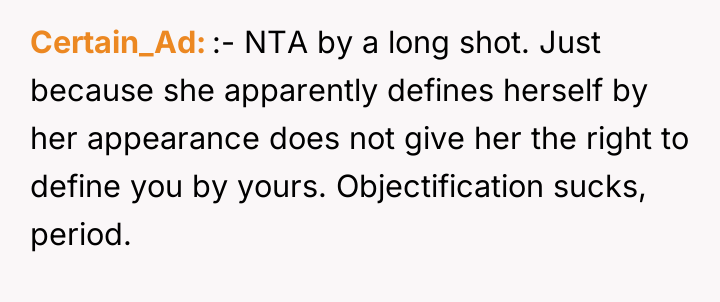
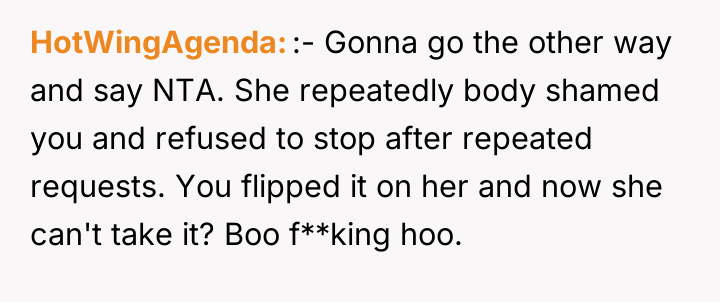
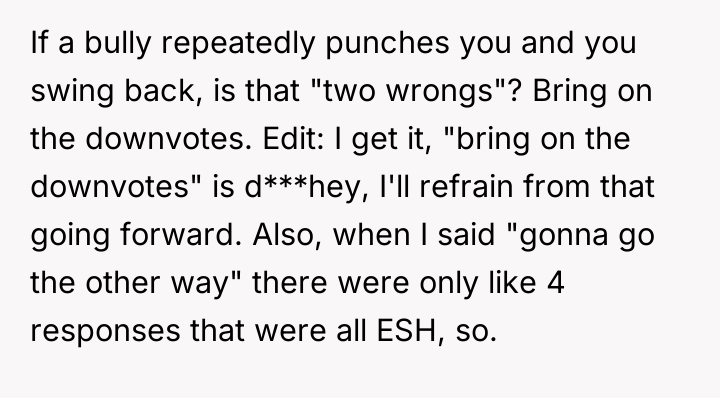
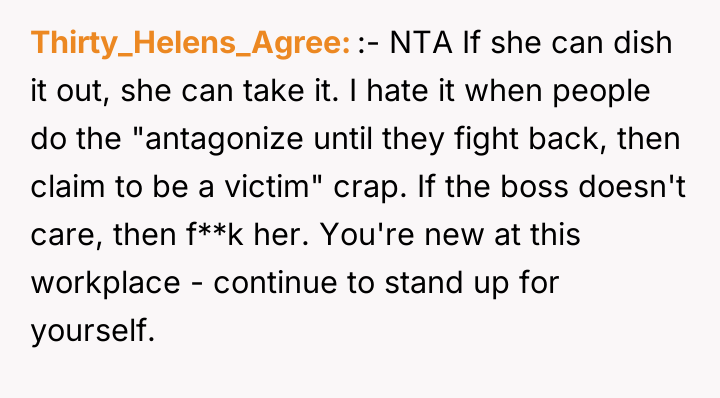
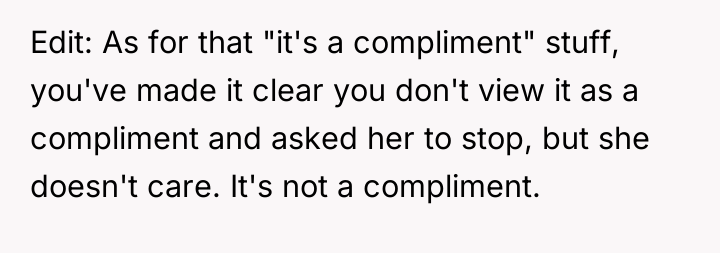
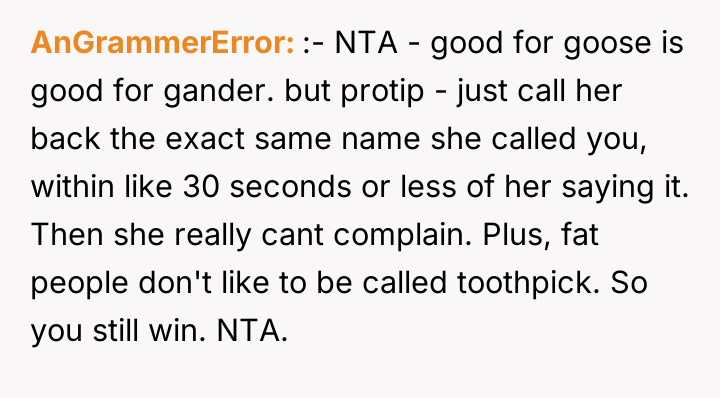
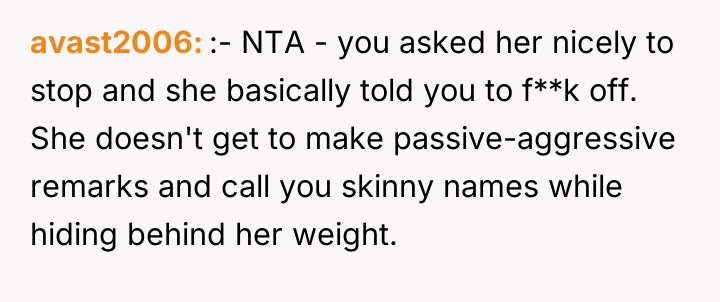

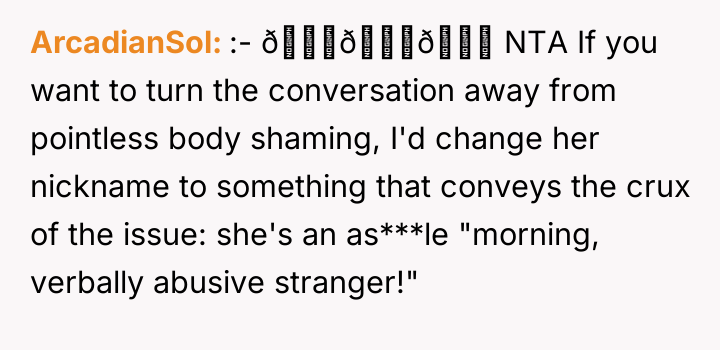
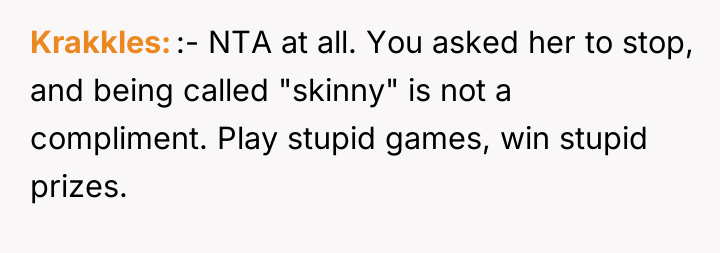
The original poster (OP) faced repeated comments about their weight from a coworker, leading to a situation where the OP retaliated in kind after initial requests to stop were ignored. The central conflict lies between the OP's desire for respectful boundaries at work and the coworker's refusal to cease the commentary, which was then met with reciprocal name-calling.
Given that the coworker initiated the inappropriate comments and dismissed direct requests to stop, is the OP wrong for mirroring the behavior, even though the coworker reacted emotionally to the comeback, especially when management refused to intervene?